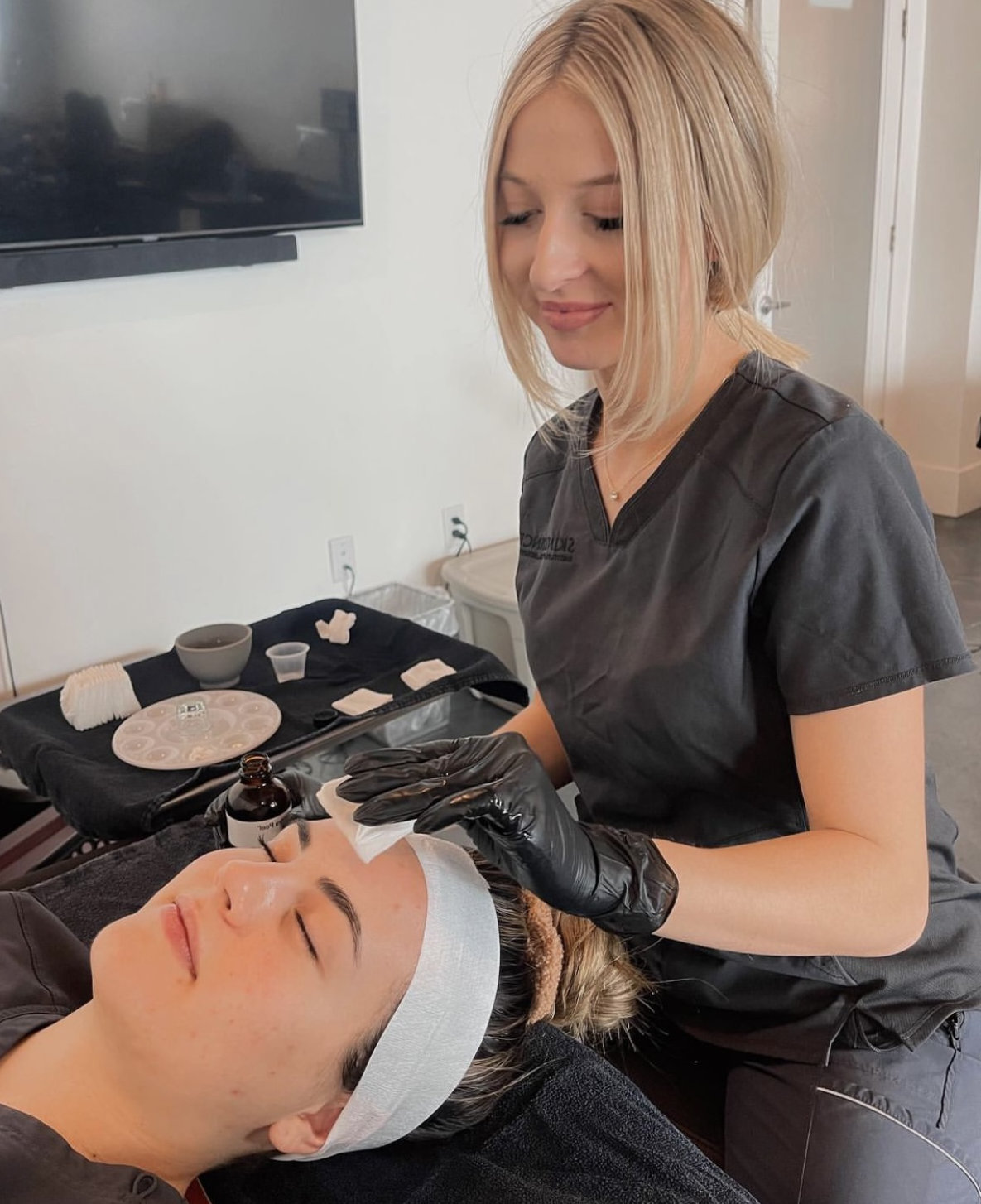Enrolling in an esthetician school goes beyond just getting your license; it’s about diving into the essentials of keeping your skin healthy and glowing, especially as we welcome the sunny days of spring.
This blog is your perfect guide to understanding the crucial importance of Sun Protection Factor (SPF) in protecting your skin from the sun’s harmful rays. We’ll explore the significance of SPF in your daily skincare routine from the experts here at Skin Science Institute in Salt Lake City, UT. Whether you aim to become a licensed esthetician or upgrade your skincare game, this blog will provide insights and tips for adequate sun protection.
Ready to give your skin the care it deserves this spring? Let’s dive in.
Why SPF Matters
Sunscreen isn’t just another item in your skincare routine; it’s a critical shield against the sun’s harmful ultraviolet (UV) rays. These rays, known as UVA and UVB, are responsible for sunburns and long-term skin damage, including premature aging and an increased risk of skin cancer.
SPF measures how well a sunscreen can protect the skin from the sun’s rays. Understanding and choosing the right SPF product is essential for anyone looking to maintain healthy, youthful skin, whether a seasoned esthetician or a skincare enthusiast. Additionally, sunscreen protection is important year-round, not just in the warmer months.
Selecting the Right Sunscreen
When choosing sunscreen, there’s more to consider than just the SPF number. Water resistance is another important feature, especially for those who spend much time outdoors or in water activities during the warmer months.
Here are a few tips for selecting the right sunscreen:
- Broad Spectrum: A broad-spectrum sunscreen protects your skin from UVA and UVB rays. UVA rays penetrate the skin more deeply than UVB rays and are primarily responsible for premature skin aging and wrinkles (photoaging). On the other hand, UVB rays cause sunburn and play a significant role in developing skin cancer.
Broad-spectrum protection ensures that your skin is shielded from the full range of harmful effects caused by both types of UV radiation, providing a comprehensive defense against sun damage. - SPF 30 or Higher: SPF 30 or higher is recommended because it blocks approximately 97% of UVB rays, offering increased protection. No sunscreen can block 100% UVB rays, but SPF 30 or higher balances adequate protection and practical use.
The Skin Cancer Foundation recommends a water-resistant, broad-spectrum sunscreen with an SPF of 30 or higher for any extended outdoor activity.1 - Reapplication: Sunscreen effectiveness diminishes over time, especially when exposed to direct sunlight, which breaks down the active ingredients. Swimming, sweating, or toweling off can remove sunscreen from the skin’s surface.
Regardless of the SPF, it’s important to apply one ounce (two tablespoons) 30 minutes before going outside and reapply it every two hours or immediately after swimming or sweating.
Following these guidelines can significantly enhance the effectiveness of your sun protection regimen, helping to prevent sunburn, reduce the risk of skin cancer, and minimize premature aging due to sun exposure.
When Sunscreen is Not Enough
Given the importance of SPF in protecting against harmful UV rays, it’s crucial to consider the specific needs and risks associated with individual skin types and environments.
According to Steven Q. Wang, MD, a board–certified dermatologist in Irvine, CA, for people with a history or high risk of skin cancer, genetic diseases such as albinism or xeroderma pigmentosum, or certain immune disorders, even SPF 50 may not be enough. The same goes for specific scenarios, such as hiking or skiing at high altitudes or vacationing near the equator.1
Integrating Sunscreen into Your Skincare Routine
Incorporating sunscreen into your daily skincare regimen is not just a preventive measure against sunburn; it’s a proactive approach to combat premature aging and protect against the risk of skin cancer.
Sunscreen becomes even more crucial for individuals undergoing skin treatments that increase photosensitivity, such as retinoids or chemical peels.
Educational Insights from Esthetician Programs
Esthetician programs, like those offered at Skin Science Institute, provide comprehensive training on skin health, including the science of sun protection.
These programs equip future licensed estheticians with the knowledge to educate their clients about the importance of daily sunscreen use, how to select the right products, and the best practices for application.
The Role of Estheticians in Promoting Sun Safety
Licensed estheticians play a crucial role in promoting sun safety. They can offer tailored advice on sun protection for different skin types and lifestyles through personalized skincare consultations.
Additionally, estheticians can debunk common sunscreen myths and clarify why sunscreen should be a non-negotiable part of everyone’s skincare routine, regardless of the season.
As we move into the spring and look forward to spending more time outdoors, let’s prioritize our skin’s health by choosing the right sunscreen and including it in our daily skincare routines.
For those interested in pursuing a career in skincare or simply want to enhance their skincare routine, understanding the importance of SPF and how to use sunscreen effectively is essential.
If you’re interested in beauty and skincare, consider a rewarding career as a licensed esthetician. Get your free info pack from Skin Science Institute today.




